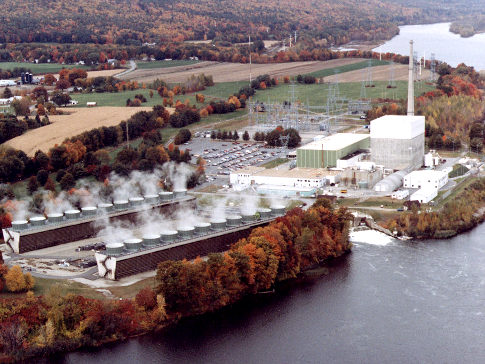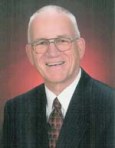Some Big Changes in Vermont
 Since the previous View from Vermont posted June 12, courts have issued several decisions that will have a major effect on nuclear power nationally, and on the Vermont Yankee nuclear power plant in particular. The Supreme Court ruling on the Affordable Health Care Act has moved attention from these important federal court decisions, which otherwise would have received more publicity (outside of Vermont).
Since the previous View from Vermont posted June 12, courts have issued several decisions that will have a major effect on nuclear power nationally, and on the Vermont Yankee nuclear power plant in particular. The Supreme Court ruling on the Affordable Health Care Act has moved attention from these important federal court decisions, which otherwise would have received more publicity (outside of Vermont).
Three main rulings covered the following topics:
- A lawsuit challenging the legality of the Vermont Yankee license extension issued by the Nuclear Regulatory Commission.
- Refunding spent fuel storage costs nationally.
- The "used fuel confidence" rule of the NRC.
Meanwhile, Vermont Yankee's opponents staged another rally at the plant's gates, with planned arrests.
And meanwhile, plant supporters continue to spread the positive message about Vermont Yankee and nuclear power.
The challenge to Vermont Yankee's license
The State of Vermont and intervenors sued the NRC in federal court, claiming that the NRC issued Vermont Yankee's 20-year license extension illegally. The plaintiffs asserted that the license extension was invalid because the plant has no valid water discharge permit.
The court of appeals dismissed the suit on procedural grounds. The court noted that there were six opportunities for the state to raise the issue during the licensing process. These opportunities were not used. The court said that all administrative avenues must be used before coming to the courts.
In other words, waiting until the license is issued, and then hoping the court will issue a "gotcha," won't work. Commentators expect that the Supreme Court would not accept a challenge to a circuit court decision on procedural grounds, when there is no disagreement between circuit courts and no larger issue involved:
"Appeals court hands NRC a victory in Yankee license case"
Commissioner Miller, chair of the Department of Public Service, argued the case:
"State loses another legal round in Vt. Yankee relicensing"
This decision was reported in the Valley News, our local paper, on the back of the front page, at the bottom. This area contains short, single paragraph articles of local interest. The Valley News does not support Vermont Yankee. If the plant had lost, it would have been a front-page story.
Yes Vermont Yankee has a great post about the ruling:
"Vermont loses lawsuit against NRC about water quality permit"
Used fuel storage cost refund
Vermont Yankee sued the federal government to recover the cost of storing used fuel on site. Other plants have filed similar suits. The plants claim that they have been forced into unnecessary costs because the federal government has not fulfilled its legal obligation to take custody of the fuel and remove it.
The court ruled for Vermont Yankee, and allowed almost all of the costs. What is of note in the Vermont Yankee case is that the state had put a special assessment on Vermont Yankee when the plant needed to build a concrete pad for dry cask storage. About this, the court said it would not be inappropriate to describe the high fee the state charged for construction of the concrete pad for storage of the dry casks for the used fuel as "blackmail"(!)
We will certainly hear more about "blackmail" in the fall election campaign. Vermont's governor Peter Shumlin, a committed opponent of the plant, is up for reelection at the end of his two-year term.
Waste confidence rule
A federal circuit court decision found that the NRC's waste confidence rule is not valid, because the NRC did not provide an adequate environmental impact statement for long-term storage. This decision is for all plants, not just Vermont Yankee, and will not affect Vermont Yankee immediately. The plant already has its 20-year license extension, so there is no pending NRC license to be stayed. However, there has been editorial commentary based on this ruling, and we can expect opponents to bring this up during the State Public Service Board hearings on the required Certificate of Public Good next year.
The State Public Service Board
Under Vermont law, the Vermont Yankee plant requires a Certificate of Public Good from the Vermont Public Service Board to operate. The original certificate expired on the same day as the expiration of the original NRC license.
The plant continues to operate under the original certificate because it had applied for a new one, and the proceedings are still in progress. The board had actually completed its proceedings several years ago, but was blocked from releasing them by a state senate vote that led to the Entergy v. Vermont lawsuit. The senate action was found illegal by the federal district court in January. The state has been enjoined by the court from acting to shut down the plant while the decision is appealed.
The board has set a schedule with proceedings finishing in August 2013, with their decision to follow. Entergy just filed a motion with the board suggesting the limits of the proceedings. Since the board cannot consider safety, or anything related to safety, or veiled attempts to imply safety, there is a real question about the proper scope of the proceedings. The board will hold a public hearing in Vernon, the plant's hometown, in November.
The intervenors are expected to file their own opinions on the board's proper scope. As a public radio reporter called it, intervenors are looking for any "hook" they can find to limit the plant's power or shut it down. Vermont Yankee's opponents are eying a requirement for year-round use of the existing cooling towers as a way of limiting the plant's power. This was a partially successful tactic recently at the Oyster Creek nuclear plant in New Jersey.
Some things stay the same: The opponents
The various local opponents groups, banded together during the last year as the Safe and Green Alliance, have not slackened their efforts to keep the Vermont Yankee opposition story in the news. They staged a protest event on Sunday, July 1.
Among other proceedings, a large "Trojan Cow" (600 lbs) was unloaded at the plant's gates. The event received lots of free publicity from several newspapers, as opponents have become very good at this. In the Brattleboro Reformer, a state trooper was quoted as saying that the state was doing "due diligence" to shut the plant down, but the troopers had to do their own due diligence and arrest the protesters:
"Protesters arrested at Vermont Yankee gates"
Capt. Ray Keefe of the Vermont State Police said that there's been a long relationship with the organizers and various police agencies to ensure that things run smoothly.
"Cow attacks Vermont nuke plant (video)"
Meredith Angwin has a stinging commentary about the protest at Yes Vermont Yankee:
"Vermont Yankee protest: low turnout and low intelligence"
A regatta is planned for August 18, with the objective of publicizing the plant's use of the river.
And the supporters
There is no slackening of effort on the part of the plant's supporters. For example, opponents always refer to the plant's emergency planning zone (EPZ) as the "evacuation zone." In a recently published letter, Dick January, now on the plant engineering staff, described another "EBZ": the economic benefit zone.
"The Vermont Yankee economic benefit zone"
Dick is a long-time activist, going back to our days at the Yankee Atomic nuclear power plant and the Massachusetts shutdown referendum. His letter nicely shows that the Vermont Yankee plant is a very big economic benefit to the surrounding tri-state communities.
In fact, according to a member of the local chamber of commerce, this was one of the original justifications for locating the plant where it is. This fact will undoubtedly be raised again by supporters during the upcoming Public Service Board proceedings for a Certificate of Public Good.

_____________________

- Shaffer
He is coordinator for the Vermont Pilot Project. Shaffer holds a BSEE from Duke University and an MSNE from MIT. He is a regular contributor to the ANS Nuclear Cafe.







